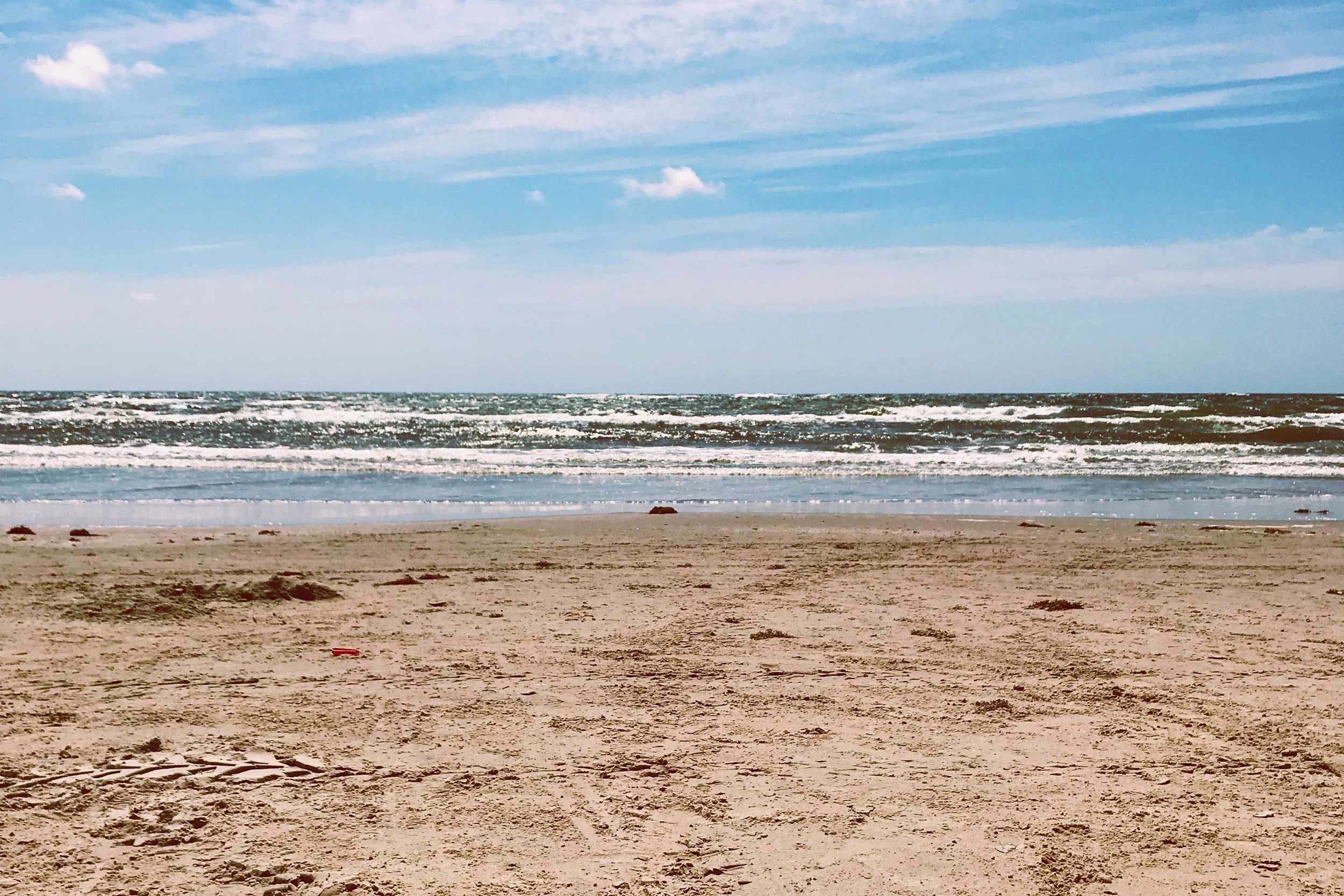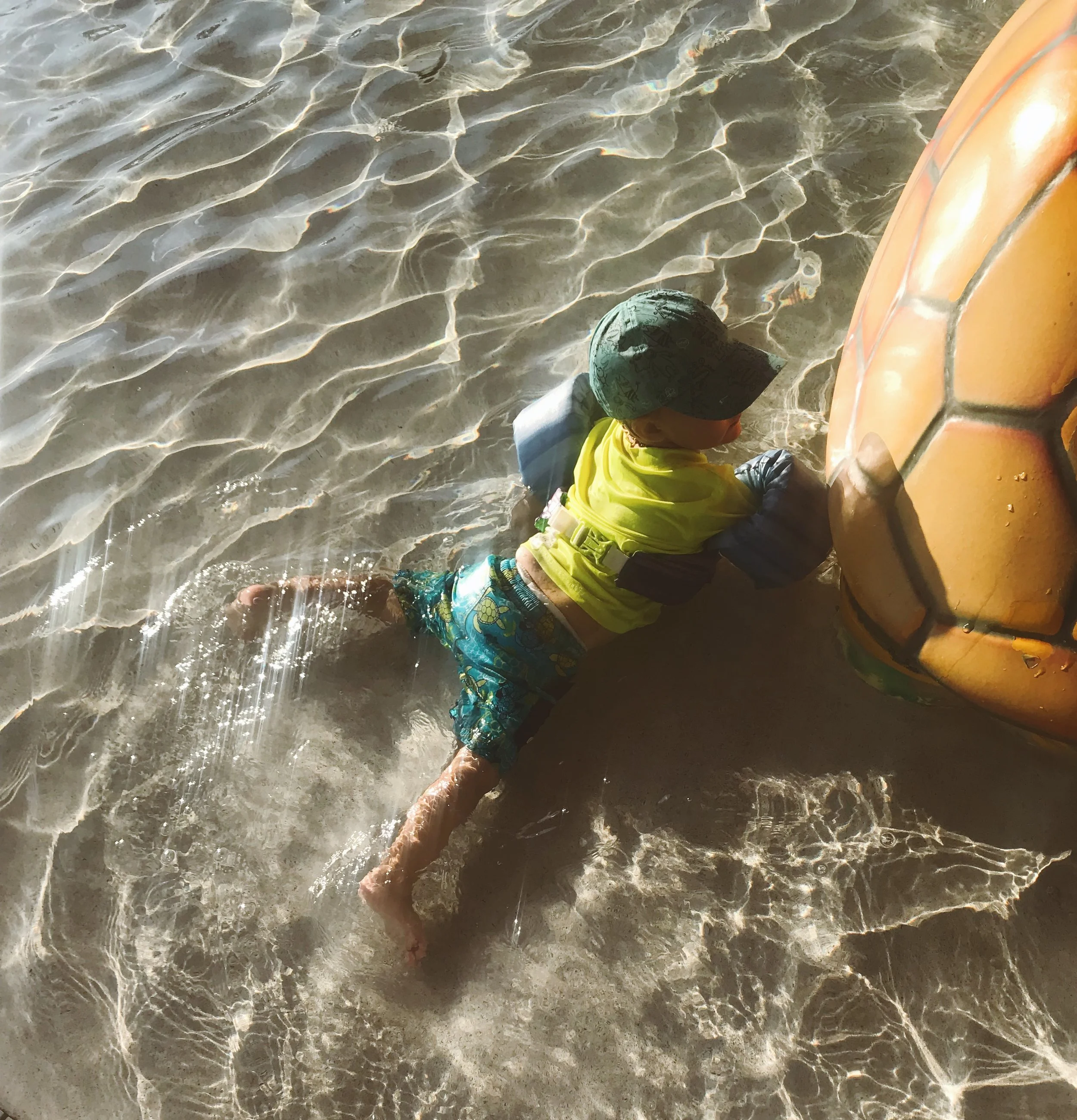Leaving
Her window swallows the empty land around them – zip, zip – giving her a headache. And the cars whipping past. And the heat. She can feel her hair twisting with the humidity blowing in through the vents. And the sun beating down on them and the temperature inside the car climbing and climbing. This car, with its peeling paint and the stuffing slipping out from the seats and the engine that won’t go above fifty. They’ve been in it for two days and her legs are feeling heavy and clumsy, bouncing them and bouncing them.
Her husband is driving, his broad hands spread wide across the steering wheel with its brown leather flaking off in his palms. There are pieces of it stuck to his upper lip, pieces scattered across the thighs of his shorts. He’s sweating and there is hair stuck to his temples and the front of his shirt is peppered and wet, but he’s driving like this is exciting, like he was made for this – one hand on the wheel, the other holding a cigarette to his mouth, shoulders relaxed. He’s singing Paul Anka’s “You Send Me.” His voice is off-key and grating to her ears and she wants to smash her hands against the side of her head so she can’t hear him and his fake happy voice.
Behind her, their son, Eli, is babbling and smacking his hands against the sides of his car seat. To her, it seems he is trying to make music with her husband, the two of them so much alike, and Eli only a baby. When she turns around to look at him, all she can see is the top of his head, his dark slick of hair. So much hair! She had been shocked when the nurse handed him to her at the hospital, only his head poking out of the worn hospital blanket – not her baby surely. She had unwrapped him, studied his tiny, translucent fingernails, his paper-thin skin, the gentle bow of his mouth. Everything, so much like her husband. She had wanted to ask the nurse if she was sure it was her baby.
“So much like your husband!” the nurse had said. “Just like Daddy!”
And now, leaving everything behind, stuck in the crumbling car that smelled like sweat and pee and rot. The people who pass them must be laughing at the three of them! Driving ten miles under the speed limit faces red and sweaty, the tires whap, whap, whapping against the road. It had not been her idea to leave. One day, her husband had loaded the car with things to sell: Eli’s high chair and crib, the record player she had taken with her from her parents' house, their kitchen table and chairs, the headboard from their bed that she had salvaged and stained. And her and Eli standing there watching him. “Time to move!” he had told her. She had shouted at him as he left telling him that he could not make her leave, that she would not go, but he had closed the door on her words and come back in the middle of the night smelling like beer and cigarettes. He had reached for her in bed, slurring something into her ear, maybe sorry, but she had pretended to be asleep.
“Where are we going?” she asks again, knowing the answer already.
Her husband turns up the volume on the radio. Paul Anka’s voice sounding tinny from the straining speakers. Now, his singing has turned into shouting. “Darling, you send me!” he calls.
From the backseat Eli laughs and tries to join in, shouting nonsense words.
She opens her mouth to say something, to make him stop and listen to her.
“Honest you do, honest you do,” louder and louder until she gives up. She can feel her husband’s voice vibrating in her chest. It fills the whole cab of the car, pressing against her. She rolls down the window to let it escape, the violent shushing of the road washing over her instead. She can’t breathe. The suffocating heat blows in the pungent scent of exhaust. Her husband shouts and shouts and her son giggles behind them, and all she can think about is the two duffel bags in the trunk, the only things they have left from their old life.





